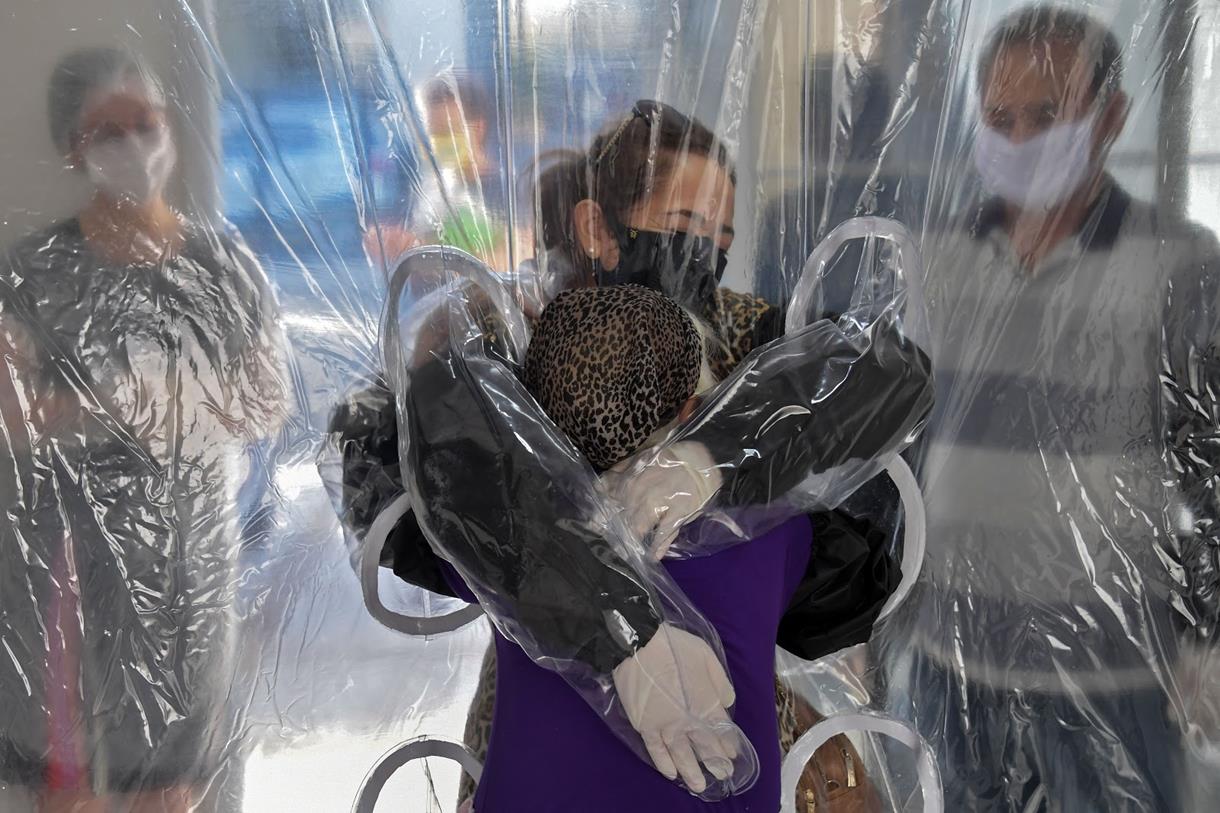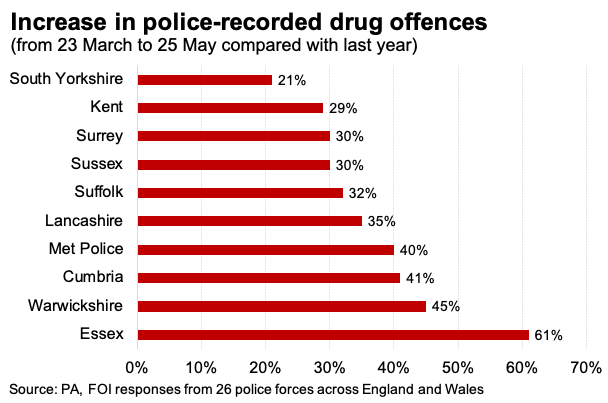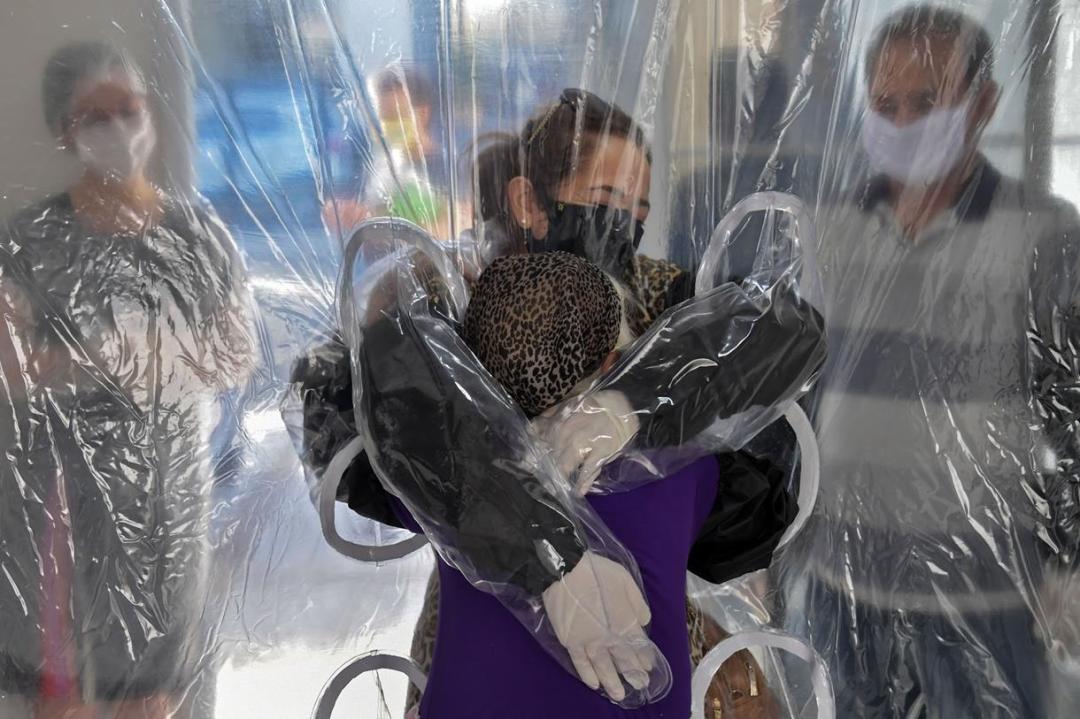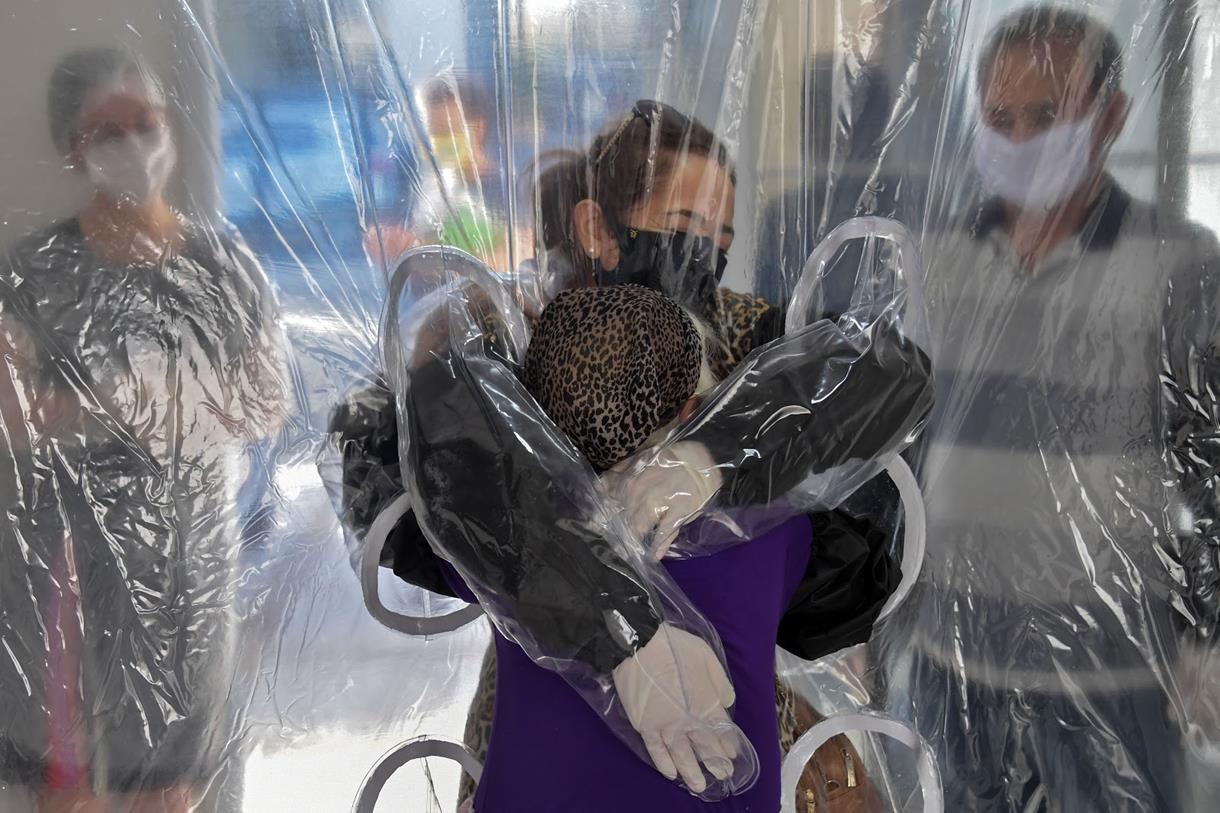The Spectator brings you the latest insight, news and research from the front line. Sign up here to receive this briefing daily by email, and stay abreast of developments both at home and abroad.
News and analysis
- The government has granted the NHS immediate authorisation to use dexamethasone, the 50p a day steroid that Oxford University researchers say can cut Covid-19 deaths by a third for patients on ventilators. Ross Clark has the details.
- Keir Starmer confirmed in PMQs today he believes it is safe for children to return to school. James Forsyth has the details below.
- More than half of businesses plan to make redundancies within three months of the government’s furlough scheme expiring.
- More than two million vulnerable people under order to shield themselves at home can stop isolating at the end of July, according to the Telegraph.
- Quarantine-free ‘air bridges’ with other countries could be agreed upon by the end of the month, allowing UK holidaymakers to travel abroad.
- A&E appointments may be permanently introduced in response to the pandemic, according to the head of the Royal College of Emergency Medicine.
- GCSE and A-Level students have achieved higher grades in every subject this year, according to research by FFT Education Datalab. Grades have been calculated by teachers after exams were cancelled by the pandemic.
- Private schools plan to ignore government guidance and resume lessons in September, with some creating their own track and trace systems. Meanwhile 97% of universities intend to provide some in-person teaching in 2020.
- Four-month-old Emmanuel Boateng, one of Britain’s youngest Covid-19 survivors, has finally returned home with his parents after spending three weeks in intensive care.
- Premier League football returns today after 100 days away.

Did Sweden have a choice? by Ross Clark
Anders Tegnell is either a hero or villain, depending on whether you think Sweden’s approach to Covid-19 has saved the economy and respected individual freedom or whether you think it has needlessly cost lives. But is the country’s refusal to impose a lockdown a result of his wisdom and judgment – or was the Swedish government tied down by its constitution?
The latter is the conclusion of Lars Jonung, an economist at Lund University, who has published a paper explaining why he thinks that Prime Minister Stefan Lofven and his government did not have the option of following other European countries along the route of lockdown. He cites three relevant articles of the constitution, noting that short of changing it, the government simply lacked the powers to order people to stay at home or to forbid them from travelling around the country. The government did, however, possess the powers to ban public assembly in order to tackle an epidemic – powers it duly employed by banning gatherings of more than 50 people.
Admire or condemn Sweden’s exceptionalism, it is worth considering the constitutional constraints on the government there and whether such a system would be desirable in Britain.
Read more from Ross Clark on Coffee House.
In pictures

In words
It’s sadly very unlikely that our health crisis is likely to facilitate an opening to international travel this year.
– Simon Birmingham, Australia’s Tourism and Trade Minister, on Australia’s border plans.
Back to politics by James Forsyth
For the first time since Keir Starmer became Labour leader, Boris Johnson clearly bested him at PMQs. Johnson, backed up by Tory MPs who were determined to make as much noise as possible in the socially distanced chamber, pushed Starmer to explicitly declare that it was safe to return to schools. Starmer was reluctant to do so, and Johnson kept hammering the point. This took the wind out of the Labour leader’s sails and he failed to land any blows despite the government’s difficulties in recent days.
The backbench questions didn’t produce any particularly awkward moments either. So after a difficult 48 hours, Johnson came through PMQs unscathed. There was, though, an indication of No. 10’s concern in the fact that several Tory questioners went out of their way to say how good it was to see the PM back in his place and looking so healthy.
Global news
- Millions more people in Beijing have been put under renewed lockdown restrictions as the spike in Covid-19 infections grows. More than 1,200 flights in and out of the city today have also been cancelled. Ross Clark examines what this means for our understanding of Covid-19.
- Vladimir Putin has installed a disinfection tunnel at his country residence to protect him from contracting Covid-19 from visitors. Andrew Foxhall looks at how the Putin regime is dealing with the fallout.
- Doctors in Nigeria have gone on strike for better benefits and protective equipment during the pandemic.
- The president of Honduras has tested positive for Covid-19.
- The Food and Drug Administration has advised Americans to observe two-metre social distancing with dogs and their owners, as humans can infect animals with coronavirus.
- Hurtigruten’s MS Finnmarken became the first cruise ship to set sail since an industry-wide shutdown in March. The ship will pass 34 ports along the Norwegian coast.
- Researchers in Israel say they have invented a self-cleaning face mask. The mask draws power from a mobile phone charger to kill Covid-19 with heat.
Research: Covid-19 positive?
As Covid-19 has spread across the world, many have wondered if they had the virus and didn’t know. According to a report from the Scripps Research Institute, this may certainly have been the case for some. Researchers have found that ‘asymptomatic persons seem to account for approximately 40 to 45 per cent of Covid-19 infections’. The study doesn’t just highlight a high proportion of unknowing patients, but their likelihood of transmitting the virus, which the study finds can be ‘for an extended period, perhaps longer than 14 days’. Researchers argue their findings confirm the need for a comprehensive testing programme, to gather more intel about who may have the virus – especially if so many aren’t showing symptoms.
Datawatch

Our latest podcast
Coronomics
- Drug offences have jumped 27% during lockdown despite total crime dropping by a quarter.
- EasyJet has delayed the order of 24 planes until 2025 in response to the pandemic.
- 75% of people have used less cash during lockdown, instead favouring digital payments.
- Retail sales in America jumped by more than 17% in May over April, more than double the forecast rise of 8%
- Volvo will cut 4,100 jobs around the world.
- Some 65% of children under the age of six in Italy have experienced behavioural problems and regression during lockdown.
- Just 14% of Americans describe themselves as ‘very happy’, the lowest level in 50 years according to a survey.
More from The Spectator
Is this the real reason Sweden didn’t lockdown? – Ross Clark
Macron is trying to bathe in de Gaulle’s glory. It won’t work – John Keiger
Watch: Hoyle hits out at John Bercow’s ‘retrograde’ Trump ban – Steerpike
We need to talk about Munira Mirza and Priti Patel – Brendan O’Neill
Have the protests proved that Covid-19 risks are being vastly exaggerated? – Dr Chris von Csefalvay
Self-isolation tips from Spectator Life
9 statues that are ripe for removal – Benedict Spence
The NIU NQi GTS Sport: an electric scooter built for the Covid era – Simon de Burton
Forget the school slop – a true rice pudding is a rare treat – The Vintage Chef, Olivia Potts







Comments